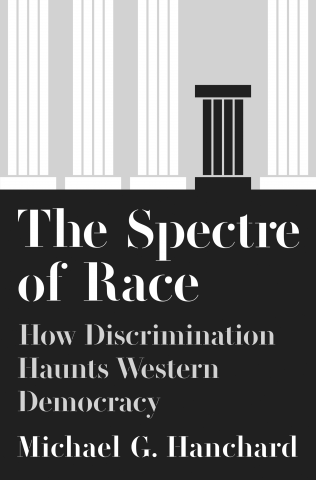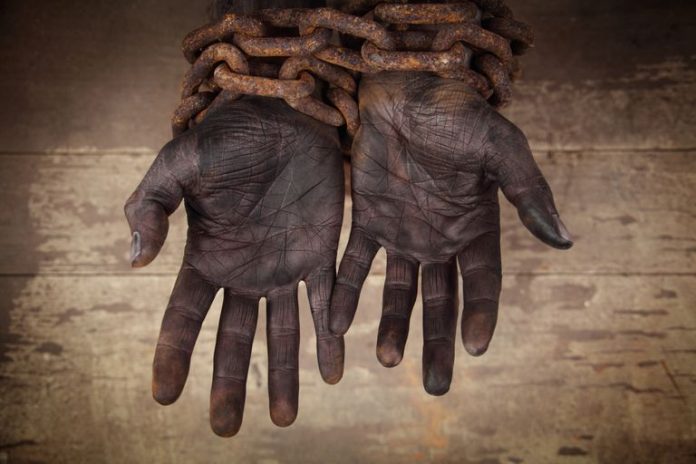(THIS ARTICLE IS MACHINE TRANSLATED by Google from Norwegian)
The new right believes to have a stake in Trump's election victory in 2016, and Trump abstained from condemning the wing's murder campaign in Charlottesville 11. August 2017. The new right is making progress. Now, the wing is seeking to moderate its views, to be less aggressive and physically challenging, just as Nazi symbols have been removed. The goal of the tactic is to consolidate the right-wing views into wider strata of the population, including the intelligentsia and academics. With Trump goes a ghost – spectre – through the world.
Race as an indicator
Under neoliberalism, the following assumptions are included in the worldview: that globalization is inevitable, that everyone benefits from growth, that increased consumption gives more happiness, that competition increases efficiency, that capital control and public regulation block growth and that low taxes stimulate investment and create new jobs. The Specter of Race highlights how differences that can be identified by race were made politically prominent in this modern policy as well. The author makes a survey of the situation with a look at values, hierarchy and ultimately inequality, all of which help to characterize the process and the relationship between race construction, politics and institutions.
The new right is beginning to take root in the middle class and academic environments.
For democracy, it is not possible to assess in isolation, but must be analyzed in relation to other forms of social organization and administration, which may be fundamentally different. Nevertheless, they all appear within the same culture, the same worldview, the same "social ecology".
The most robust, long-lasting democratic state formation – France, England and the United States – has been present in the societies in the world that have benefited most from slave labor and from being a colonial power. The author asks: Is this random?
In America, the hierarchy has included many marginalized groups throughout history: Native Americans, African Americans, Latin Americans. Everyone has historical experience with both rhetorical and formal barriers to participation in the US state and to full citizenship. Here, the citizen's empowerment and community participation has slavery as its very premise. Hanchard's mission is to explore the way in which democratic institutions have supported undemocratic practices such as slavery, discrimination and other forms of exclusion.
Hierarchy and exclusion
 Hanchard highlights the idea of "difference" as a type of political distinction in democracy – how social inequalities are often linked to the economic sphere, and how political inequality is the result of conscious decisions to exclude certain groups from participation. He argues that a discrimination-based hierarchy in society has affected state formation and expansion, immigration and citizenship, as well as inter-state relations.
Hanchard highlights the idea of "difference" as a type of political distinction in democracy – how social inequalities are often linked to the economic sphere, and how political inequality is the result of conscious decisions to exclude certain groups from participation. He argues that a discrimination-based hierarchy in society has affected state formation and expansion, immigration and citizenship, as well as inter-state relations.
The rationale for the hierarchy and the exclusionary practices has been that if the minorities were held accountable and had access to citizenship and privileges, they could undermine the power of the elites and the dominant citizen groups in politics as well as in society as such. According to Hanchard, a racial and ethnonational hierarchy created an institutionalization of political inequality based on the premise that divergent groups could not share the same state.
Specifically, Hanchard criticizes the discipline of comparative politics, especially its preferences for quantitative methods and its low understanding of the value of anthropological studies – studies of particular cultures. After examining the subject from its origins to the present day, he has found that comparative politics in political science have largely ignored issues such as colonialism, racism and imperialism. Yes, the ability of the discipline to rank the main role that racism has had in policies around the world is absent.
Hanchard's topicality
In the decades following World War II, a system of international institutions was developed, with a security system (including NATO) combined with a vision of global free trade on the agenda. Extreme Islam and refugee flows, together with the consequences of the 2 financial crisis, were crucial factors in reviving nationalism and race. Today, it is clear that a – albeit somewhat diffuse – new right-wing movement is manifesting itself more and more articulate, with analysis, politics and practice – and with a far more coherent conceptual apparatus than has long been seen on the far right.
«Today, Europe faces the greatest danger in her history, a threat that threatens the very existence of her civilization. Because she's in the middle of a war and she doesn't even know it. We Europeans are in great haste and fierceness being occupied and colonized by people from the South and by Islam.» Thus, the European part of the right-wing movement expresses itself.
Is it a coincidence that the most enduring democracies are to be found in states with the greatest benefit from the slave trade?
Like the all-right movement, the new right movement manifests itself in relation to national parliaments, but it also has extensive extra-parliamentary activities. The focus is on extensive cultural criticism, in which the national identity and the aversion to other ethnic descent are stated. Its actions may take on the nature of Greenpeace-like struggles, and relations with the middle class and academic environments are beginning to take root.
Broadly speaking, the main points of the new right-wing policy – the recapture of Europe – can be summarized under the heading «The Great Replacement» thus 1) a total halt to all non-western immigration, 2) remigration, and 3) an increase in the birth rate of white Americans and Europeans.
Liberal and visionless
In Europe, the new right-wing movement can be traced back to the French Génération Identitaire, founded in 2012, which represents a larger ideological flow in conflict with the ideas of Western liberal democracies. The latter implies an ethnopluralism, advocating the "right of all peoples to preserve their own identity in their own country". Despite the fact that the spread of peoples in a globalized world today is generally valued as social diversity.
When, in a few years, Identitism has succeeded in spreading to most of the Western world, one major reason may be that it offers something that is absent in the political world today, namely visions and an idea-political alternative to an increasingly weak liberal status. quo.
The world continues to evolve according to the «law» of uneven and combined development. Thus, under the worldview of neoliberalism, the challenge will be not only to address the positions of the new right, but perhaps first and foremost – in theory and in practice – to develop broad alliances and communities of society against the major themes of the time: the climate threat, the declining biodiversity, the increasing economic inequality – and the racial segregation.


